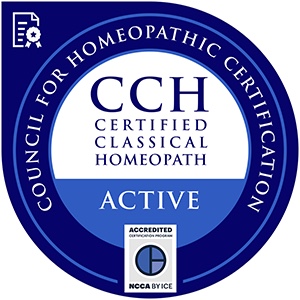
Homeopathy is the Most Scientific Form of Medicine
Homeopathy is based on a consistent theory of disease and a universal law of cure, unlike standard Western medicine. Because this makes homeopathy a very robust system, I sometimes like to think that homeopathy is the most scientific of the medical arts.
(Confession: I think this one is just me. I haven’t heard other homeopaths say this, but if you had heard me in the shower arguing with invisible people, you might have heard it.)
From one viewpoint, this might very well be true. The law of cure on which homeopathy is based defines all the rest of the practice of homeopathy. Starting from that universal rule, which encompasses both our understanding of disease and the mechanism of all disease cure, we derive everything else. The medicines we use, how we test those medicines, how we prescribe and how we dose those medicines, all these follow naturally from our understanding of disease and its cure.
This law of cure states that a substance that can produce a particular set of symptoms in a healthy person can also stimulate a sick person to remove those symptoms and restore health. Onto that foundation, we then build the practice of homeopathy using our knowledge of medicinal substances, which we derive from centuries of toxicology and drug testing.
To prescribe, we simply match the particular symptoms we see in the patient to a substance that can cause those symptoms, then we give the medicine in a safe dose.
Unbiased drug testing in homeopathy
The first homeopath was also the first Western doctor to test his medicines on healthy subjects before treating patients with them. Dr. Samuel Hahnemann created a method for “proving” the effects of medicines on healthy people. At the time, this was an unimaginable leap in the quality of medical science. It moved medicine from a scattershot, “use what works” approach toward rational prescribing based on actual knowledge of the drugs we use.
Performing drug tests on unvetted subjects also gives us the advantage of not biasing our results by applying diagnostic criteria to our test pool, a widespread problem with modern clinical drug trials, In most pharmaceutical drug trials, subjects whose conditions are less likely to respond well to the trial can be excluded from that trial, weighting the final results.
The minimum dose
The size of the doses we use is the most controversial part of homeopathy, but it follows simply from our central tenet (that a substance that causes the symptoms can also take the symptoms away). If you’re going to give a medicine that causes the symptoms the patient already has, you had better give that medicine in a small dose. You don’t want to make the patient sicker!
That is how we come to give “infinitesimal” doses in homeopathy. We don’t always give infinitesimal doses. Sometimes, we simply have the patient take a drop of an herbal tincture, for example. But, by and large, most of our prescribing uses highly processed remedies that contain very little of the medicinal substance.
This is highly controversial among the sorts of amateur scientists who like to frequent Wikipedia, but it follows simply from our universal rule of cure. If you’re going to push patient toward the symptoms they already have, please do it gently.
Homeopathy: a robust system
So, the homeopathic system is sound. As long as our premise is true — that a substance that causes a specific set of symptoms in a healthy person can stimulate a sick person’s body to remove that same set of symptoms — then everything else that follows must also be true (and effective).
Our evidence for this comes from more than 200 years of clinical practice. We also have high quality studies, old and new, to back us up. Probably our best evidence is the sheer number of standard medicines that work on the homeopathic principle, stalwarts like quinine and digoxin and albuterol.
The less scientific things
What homeopathy lacks these days is the sophistication and precision of modern methods. Homeopathy started as a cutting edge, humane medical discipline at a time when doctors were torturing their patients with treatments more likely to kill than cure. Homeopathy introduced hygiene into the medical discussion, and quality drug testing. It made the idea of infection, and removing active infections, central to the practice of medicine.
Since the 20th century, however, homeopathy has fallen behind in many areas, notably the technological ones. Our drug testing is still based largely on first-person reporting. There are drug provings that are double blinded and placebo controlled, but those are rather rare. And we have not adopted the use of lab tests during our drug trials, which would give homeopaths access to reliable objective information on which to base prescriptions.
Ironically, drug testing again
At the time homeopathy was founded, it led the Western world in this aspect of medicine that we take for granted today. Before the first homeopaths gave medicines to their patients, they had the knowledge of those medicines necessary to avoid increasing their patients’ suffering.
Alas, our founding principles have not been able to keep up in this regard. Most of the information we use to prescribe has been translated from ancient Greek and Latin or derived from 19th century drug tests. We have not renewed much of this information during the 20th century, nor have we translated our materia medica into modern language.
Most egregiously, we have not kept up with standard practices in our new drug provings, often failing to properly blind and control our tests. And oddly for disciples of the Father of Drug Testing, we have also allowed nonsense like meditative provings into our official materia medica. (This is when a drug tester doesn’t actually take the drug but simply meditates on it.)
And lab tests! I don’t know of a single drug proving that used modern lab tests to measure the effects of the drug being tested. Faced with a panel of precise values from a patient’s lab work, we are completely helpless to make a prescription or even to narrow down our remedy choice.
This situation isn’t all our fault. The money for testing drugs in the modern marketplace is based on the potential profitability of those drugs. The way homeopathic medicines are produced makes them marginally profitable by big pharma standards. It doesn’t take much of the original substance to make a lot of homeopathic medicine. And running lab work on your drug testers every week would be quite expensive by homeopathic testing standards.
Until we manage to update our working materia medica with modern medical information, we’ll have a difficult time passing as the most scientific of medical disciplines.
Less precision needed
Interestingly, one of homeopathy’s great strengths is its ability to be effective with less precision in prescribing. We prescribe homeopathic remedies based on very broad symptom similarities, simply trying to get a rise out of the patient’s body. The medicine should be close enough to tweak the body’s response in the right direction.
Often, we give a medicine that kind of matches the symptoms we see, either because the case is overly complicated or because the patient cannot get the medicine that would be a closer match. These prescriptions often work, though they may require follow up that a better prescription would not have required.
I don’t want to make excuses, but this may be the reason why we have not updated our prescribing information much during this century. We use the most advanced case taking techniques in the modern world, individualizing each case until the average psychiatrist would complain of a headache. But then we give a medicine that would produce a rough simillimum of the bigger symptom picture and simply leave the body to react. The body’s reaction tells us then whether we got it right or not.
On the other hand, uber-precision
Conversely, a modern pharmaceutical drug might be designed in a laboratory to interrupt a specific inflammatory cascade of biochemicals, for example. This is a highly sophisticated approach based on in-depth knowledge of the chemical workings of the human body.
Ironically, though, standard medicine uses these ultra-precise methods to prescribe based on non-individualized cases. The doctor comes up with a general diagnosis based on lab values and observable signs, without consulting the patient as to their experience of the disease. This diagnosis then defines the medicine to be given.
And, of course, for all their sophistication, such biochemical drugs still must be deployed in the human body, an incredibly complex system that never seems to let one chemical bond be prevented without interfering with a half dozen others (hence, side effects).
Each system has its ironies. In homeopathy, we individualize a case to the n-th degree, only to give a medicine that matches the broader contours of the case. In standard medicine, drugs are produced with the most precise action possible, only to be prescribed on general diagnoses.
Is homeopathy the most scientific?
So, is homeopathy the most scientific of the healing arts? I would say it depends on which aspect of science we apply to the question.
If what you mean by “scientific” is “based on consistent observation and experimentation over hundreds of years,” then homeopathy is certainly scientific. If what you mean by “scientific” is “practiced on rules derived from consistent observation and experimentation, applied in a consistent way with repeatable results,” the practice of homeopathy is scientific depending on who’s practicing it, which is to say, mostly scientific. If what you mean by “scientific” is “based on consistent principles that hold true from case to case, week to week, year to year,” then homeopathy is far more scientific than standard medicine.
However, if what you mean by “scientific” is “using the most up-to-date technological methods,” homeopathy ranks less scientific. If what you mean by “scientific” is “constantly challenging your methods to more fully understand their nuances and complexities,” homeopathy falls even shorter of that standard.
Strengths and weaknesses
Established branches of science like chemistry and physics can apply their central tenets to a problem and get accurate results. So can homeopaths. We have an organizing principle that ensures exactly that.
Established branches of science also keep up with modern technology. They continually test the theories that make up their disciplines, and they apply new knowledge and develop more nuanced understandings. By and large, homeopathy as a discipline has not been challenging itself to update its methods for decades. In point of fact, it has been backsliding away from its scientific roots toward popularity and New Age-ism.
Established branches of science also develop technologies that improve their ability to perform well. In this area, homeopathy has failed. We have failed even to use the tools developed by our competitors. These tools are available (albeit expensive). It is to our own shame that we have not figured out a way to get access to them.
Conclusion
In homeopathy, we have the more robust, scientific system, because it is based on one understanding of disease and the cure of disease. Our approach to removing disease is always the same. We do not settle for suppressing or managing symptoms and then claim that we are treating the disease successfully. We give a medicine based on symptom similarity, and if we have chosen the right medicine, we expect to see improvement in the patient’s health and a diminution of the disease process.
However, we have often failed in this century to challenge ourselves, to improve our methods and to use available technology to make our discipline more effective. We have allowed religious ideas to creep into our practice and be codified, and we have tolerated the recent introduction of shamanism into the discipline. (This statement is not meant to malign either religion or shamanism, but neither are applicable to homeopathy.)
If anyone has $10 billion and 10 years to invest in upgrading homeopathy, I do think we could make it the most scientific medical discipline on the planet.
###





